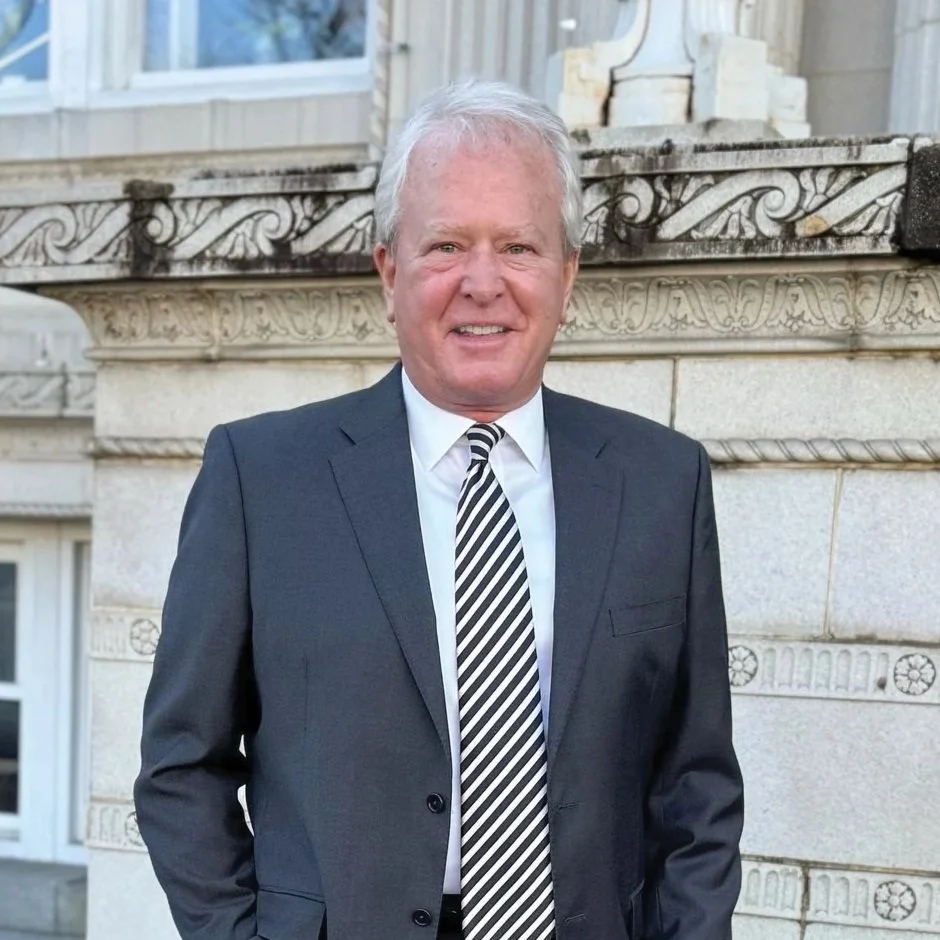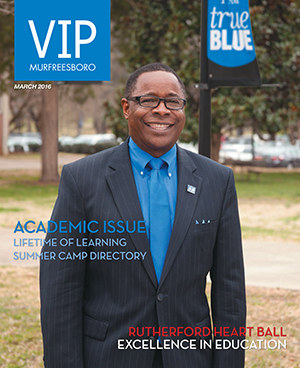VIProfile: Harry Henry
/Executive Director of the Jackson Animal Care Center
Harry Henry
Story by Lyda Kay Ferree, The Southern Lifestyles Lady. Photography by Woody Woodard.
Harry Henry is a native Jacksonian. He graduated from Jackson High School, and he has a Bachelor of Science degree in Business Administration with a major in marketing from the University of Tennessee at Knoxville.
After college Harry worked for a food sales company for 25 years, eventually becoming president. That company was sold, and he became a licensed general contractor and was co-owner of a local residential construction and land development company.
Harry has worked for the City of Jackson for about three years, beginning in the Health & Sanitation Department, and he was named Executive Director of the Jackson Animal Care Center on October 1, 2017.
He has been married to his wife, Beth, for 35 years. They have two children, four grandchildren and two dogs—1 stray and 1 rescue. His hobbies are enjoying music (listening and playing), following UT sports, and family activities.
VIP: Tell our readers about the transition from the Jackson Humane Society to the Jackson Animal Care Center, as it is now called.
Harry Henry: The city took over the Humane Society on October 1, 2017. Lynn Caldwell tirelessly ran the Humane Society for about 17 years. For several years she had toyed with the idea of retiring, and she and Mayor Gist had several conversations about the future of the Humane Society. After a committee was appointed with both city and county staff and much discussion over several months, it was decided to make the transition.
VIP: Was it a smooth transition?
HH: Yes, very smooth. When Mayor Gist and the Jackson City Council discussed this project, they felt the need to continue an animal shelter here in Jackson. Since most people have compassion for animals and want to take care of stray and unwanted animals, there had to be a place for these people to bring animals that required some attention. Both the City Council and the mayor had a spot in their hearts to proceed with a Jackson Animal Care Center.
VIP: Where were you working prior to being offered the position of director of the Jackson Animal Care Center?
HH: I was working with Kathleen Huneycutt at the Health and Sanitation Department. I enjoyed my time there. When the mayor approached me several months prior to October and asked me if I would be interested in running the Jackson Animal Care Center. I said yes because I am an animal lover, and I’ve always had pets.
VIP: Why was this transition made?
HH: Fundraising was problematic for the Jackson Humane Society. The location on Riverside Drive was in disrepair and was always flooding. It relocated to Paul Coffman Dr. until several years ago when the facility was moved to the Pinnacle Dr. location, which was jointly funded by the city and Madison County. With Lynn Caldwell’s retirement and when the city took over the operation of the shelter last fall, West Tennessee Health Care Foundation (WTHF)agreed to partner with the city as the fundraising arm of the Animal Care Center. Dr. Vicki Lake and Frank McMeen are our contacts there.
The city of Jackson pays for all of the direct operational expenses at the center—salaries, utilities, and all overhead. WTHF pays for all of the animal-related matters like medical care, food and some animal equipment through donations. All donations may be sent directly to the Animal Care Center or WTHF and all of the donations are tax deductible to the donor. They will receive a receipt or response letter stating that they made the donation. We rely heavily on donations. We did not make a lot of changes. The changes that were made were mainly internal. We have eight employees including an office manager and me.
VIP: Will the Animal Care Center remain at 23 Pinnacle Drive near Jackson State Community College?
HH: For a while. The city has broken ground on a 4900-square-foot quarantine building at the end of Conalco Drive and hopefully it will be finished in late fall of this year. It will strictly be an in-take building and will not be open to the public. When animals come into the center they must be quarantined for two weeks. During that quarantine period they are given vaccinations and are checked out medically. The purpose of the quarantine period is to wait and see if any disease shows up and most will during that two-week period. If we can’t treat the problem, we will take the animal to a veterinarian. Some come in with diseases. The quarantine building has to be kept in a very sanitary condition as we are always on the lookout for potential problems with bacteria. At present we are both a quarantine building and an adoption building.
The plan is to build a second 4,900-square-foot building next to the one we’re building now provided we get the funding. It will be an adoption building which will be open to the public. Once we do that, the building will most likely be sold.
“There is something to do at the City of Jackson Animal Care Center almost all of the time, but it is all focused on making sure the animals are as comfortable as possible.”
VIP: What services will the Jackson Animal Care Center provide? Will these services be different from those provided by the Jackson Humane Society? If so, how? Will there be any new amenities?
HH: We’re keeping most of the same services the Jackson Humane Society offered. We have added a few medical services. The main thing is we’re taking in animals and trying to provide for them a stable environment, supplying the basics—food, water and exercise. Hopefully, emotionally, they will relax and be in better shape that way. We vaccinate and spay and neuter before they leave if they need it. Every animal gets a rabies shot, and dogs and cats have certain vaccinations they must have. We test for heartworms and sometimes intestinal worms and, on occasion, do some additional testing if we think an animal has, for example, feline disease. If they need attention, we take them to veterinarians in Jackson. The vets do a lot of free work. Sometimes when they charge us, it’s only for the medicine. We have some very good vets who really try to help us out. We’re in the process of trying to expand our list of vets and get all of them involved.
We only accept cats and dogs—domestic animals. We get calls to take possums, raccoons, eagles, ducks—you name it. We have to refer those people to TWRA (Tennessee Wildlife Resource Association) and let them decide how to handle those situations.
VIP: Describe a day in the life of the Jackson Animal Care Center. Is the Center run by volunteers except for you? Is it a 24/7 operation?
HH: We arrive at 7:30 am and open our doors at 9:30 a.m. and we close at 4:30 p.m. We will stay late sometimes if necessary. It is a 7-day operation. Someone is there every day. We are open Monday-Saturday from 9:30 am-4:30 pm. On Sundays the animals must be cleaned and watered. Volunteers come in on all days of the week and work most of the day. All staff are paid. Volunteers are invaluable to us, and we need more volunteers. When we took over the shelter, there was a group of volunteers, but we are trying to expand that group. Larger shelters like those in Nashville and Memphis have lots of volunteers. We will still have the Fur Ball and the other events that Lynn Caldwell’s group organized. We are talking about having additional fundraisers as well.
As for a typical day, most of the time it’s pretty hectic. When the employees arrive at 7:30 a.m. until we open our door at 9:30 a.m. they clean, feed, water the animals and evaluate their health/condition from the night before. Cleaning and feeding continues off and on throughout the day. We give some medicines and vaccinations to the animals that need it. Almost every day we transport animals for an adoption event or to a veterinarian for treatment or spay/ neuter. At 9:30 am people start coming in to look at animals for adoption or bring us animals that they found. Generally the animals that come in are abandoned animals or animals that someone can no longer care for. Sometimes we get cruelty cases, but not that often.
We clean cages on and off all day long. We try to do that on the hour. We must maintain high levels of sanitation at all times to prevent disease or to keep disease from spreading. We must be aware of animals with a variety of medical conditions that show up during the day and tend to those problems. There is something to do almost all of the time, but all of our efforts are focused on making sure the animals are as comfortable as they can possibly be.
Caregivers wear gloves for the intake animals and change gloves between every animal. Fortunately, gloves are inexpensive and are often donated. We have two wish lists: an Amazon list and one on our Facebook page. We are in the process of establishing a website, and there will be wish lists on our website too.
VIP: Who should people call about stray animals in their neighborhood?
HH: They should call Health and Sanitation at 425-8545. They have two Animal Control officers who will come to the home and assist the homeowner. They only handle animals within the city and only domestic animals like dogs and cats. Some private exterminators like Butler Pest Control will capture wild animals like raccoons and such.
VIP: What is the procedure for someone to adopt a pet?
HH: It’s really pretty simple. Come to our Shelter and fill out an application. Barbara Wilson, our Adoption/Volunteer coordinator, will take the application. We will have a staff member or employee with them to explain the animal’s personality and to get a feel for the adopter and what type of owner that person will be. Once they select an animal, Barbara will review the application with the adopter. She asks a few crucial questions like do they own or rent a home. They will discuss how the animal will be housed and their living condition: outside or inside, fenced yard or a tether. There are a lot of things that we look for to make sure that we find a good home for the animal. Although there are no guarantees we usually can get a feel for the adopters and the type of environment the pet will live in. If approved, we have a short contract that spells out what the adopter promises to do. The person pays a fee and picks up their pet. Dogs are $125 and cats are $80, which includes spay/neuter services, all required vaccinations and testing for certain diseases.
VIP: Talk about the vaccinations and costs.
HH: All animals are given rabies shots soon after they arrive. Dogs are given a series of three vaccinations that basically includes those for respiratory and intestinal problems. We must do this every two weeks to get them fully vaccinated. Cats also have a set of three vaccinations for various diseases—mostly upper respiratory disease. We test dogs for heartworms and cats for feline leukemia and feline AIDS. Those diseases are not treatable, but we inform the owners of their medical problem.
VIP: Is there a serious need for volunteers at the Animal Shelter?
HH: Oh, yes, yes! There is always a need for volunteers. If anyone is interested, they may call us and we will arrange for them to come in and discuss what they would like to do. It is not a difficult process.
VIP: Do you own a pet? What are your hobbies?
HH: I have two dogs, a boxer mix and a pit bull mix. I enjoy music, listening and playing oldies on the guitar. I like watching sports and my wife and I have grandchildren and like being with our families. We enjoy travel. My favorite destination is New Orleans.
VIP: Tell me about your family.
HH: I have been married to Beth for 35 years. We have two children and four grandchildren. Our daughter lives in Jacksonville, Florida with three children and our son, who lives in Jackson, has a daughter.
What to Know
Jackson Animal Shelter
23 Pinnacle Drive
731.422.7028
Monday-Saturday: 9:30 a.m.-4:30 p.m.
















































